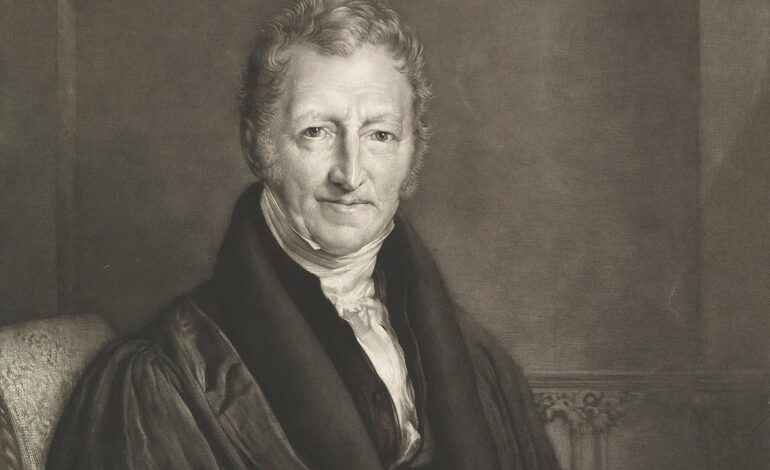Rethinking Malthus: Unpacking Misconceptions on Population Limits

The portrayal of Thomas Malthus as a narrow-minded clergyman has persisted for over two centuries, but a deeper examination of his work reveals significant misconceptions. Since the publication of his influential work, An Essay on the Principles of Population, in 1798, the term “Malthusian” has been used pejoratively to describe those who suggest there are natural limits to human progress. This article aims to clarify Malthus’s actual contributions and the broader context of his ideas.
Population Growth and Food Production
Commonly misinterpreted, Malthus proposed that while human populations can grow at a “geometrical” rate, food production tends to increase at an “arithmetical” rate. This implies that population can potentially double every twenty-five years, whereas agricultural yields increase at a much slower pace. The divergence between these two rates, he argued, could lead to catastrophic consequences if not managed.
However, Malthus did not simply predict doom. He identified two main factors that could mitigate the risks associated with overpopulation. The first, termed “preventative checks,” includes moral codes and social practices that limit reproduction. The second, known as “positive checks,” encompasses harsh realities such as poverty, disease, and conflict that ultimately serve to regulate population size.
This complex view paints Malthus not as an advocate for maintaining poverty but as an early thinker in environmental economics. His insights were intended to provoke critical thought about society’s trajectory, rather than to promote a simplistic narrative of despair.
A Broader Perspective on Progress
Malthus’s upbringing played a crucial role in shaping his perspectives. Raised by dissenting English Protestants, he was introduced to radical ideas, including the advocacy for the separation of church and state. His educational influences included Gilbert Wakefield, a noted abolitionist, which further informed his views on social justice and progress.
In my forthcoming book, Impasse: Climate Change and the Limits of Progress, I argue that Malthus was not merely an apologist for suffering but rather a prophetic critic of the notion that human history is unceasingly progressive. His arguments resonate today, especially in discussions surrounding climate change and sustainability.
Malthus’s legacy invites a critical reassessment of how we approach the challenges of population growth and environmental limits. By recognizing the nuances in his theories, we can better understand the ongoing debates about resource management and societal progress.
Ultimately, embracing a more accurate representation of Malthus allows for a richer discourse on the intersection of population dynamics and environmental sustainability. His work serves as a reminder that while optimism is essential, it must be balanced with an understanding of the inherent limits that nature imposes on human endeavors.






